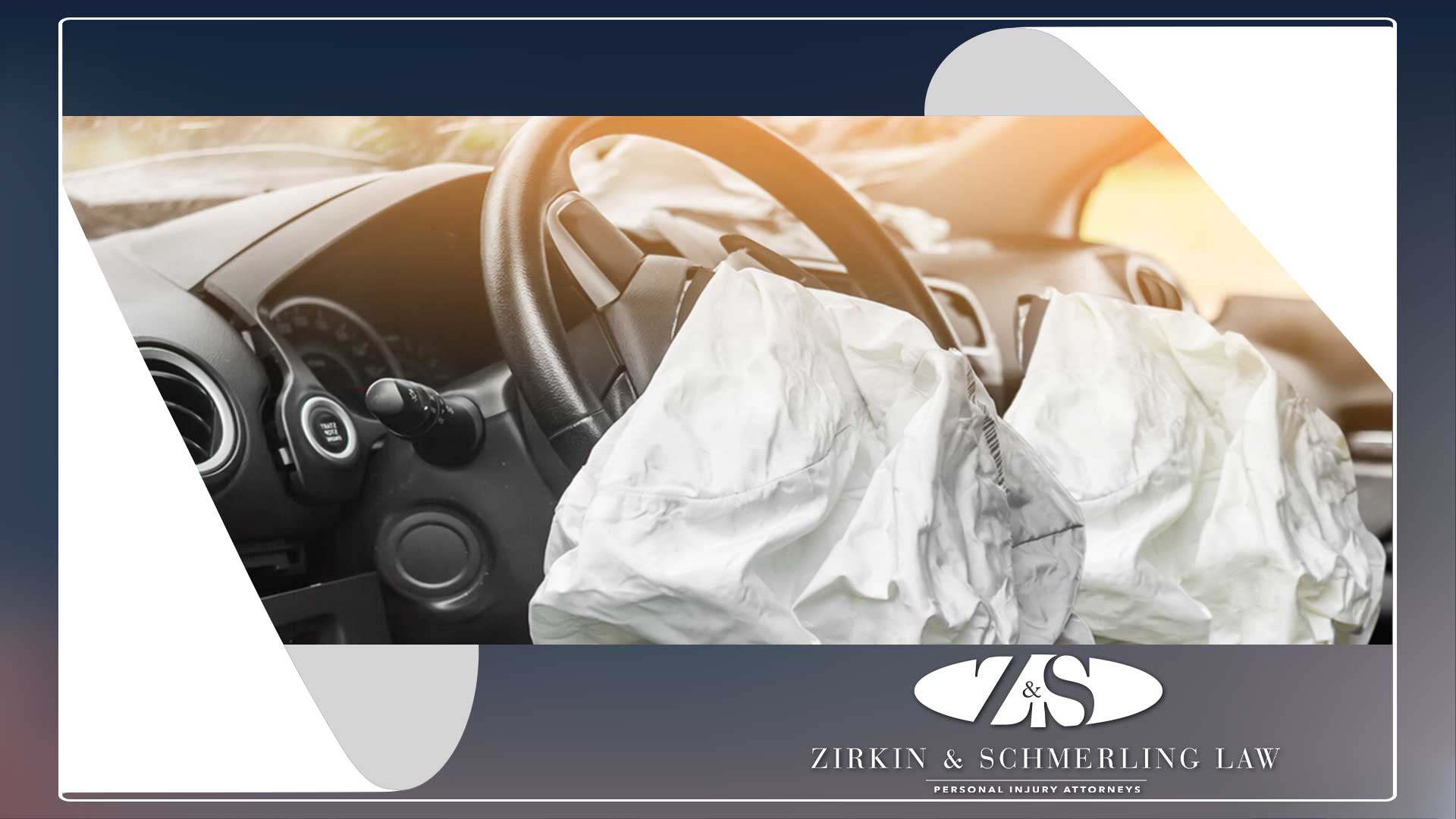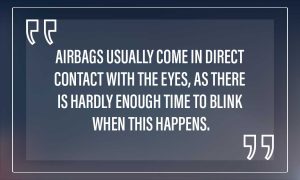
When thinking about car accident injuries, what comes to mind ranges from the less severe, like bruises and cuts, to more detrimental ones, like broken bones and traumatic brain injuries. Eye injuries may not be initially considered. But symptoms of this type of injury definitely shouldn’t be overlooked as they are common and can be severe.
Have you been in a car accident recently and are suffering from unexplained eye pain? Does your eye look normal, but you question whether or not there’s an injury causing your eye pain after the car accident? Are you having vision loss, double vision, or floaters?
If you have these questions and more about injuries you sustained in a car accident, contact the skilled Maryland car accident attorneys at Zirkin & Schmerling right away to see if you qualify for a car accident eye injury settlement.
Read on to learn more about eye injuries from car accidents.
What Can Cause An Eye Injury?
Several things and conditions can cause eye injuries in a car accident, such as:
- Broken glass
- Hitting the airbag
- Flying debris
- Hazardous chemicals

Airbags were invented because seat and shoulder belts simply weren’t enough to prevent people from forcibly hitting the steering wheel or dashboard in a car accident. Since their inception, they have reduced the number of traumatic brain injuries and deaths from motor vehicle accidents. This is, of course, a wonderful thing, but can lead to airbag damage, especially to the eye.
For an airbag to work properly, it must open explosively at the time of impact. It usually comes in direct contact with the eyes, as there is hardly enough time to blink when this happens. Thus, you can sustain eye injuries from airbags.
What Type of Eye Injuries Can Car Accidents Cause?
Eye injuries can manifest themselves in a variety of ways after a car accident. Symptoms of these injuries range from seemingly nothing to immediately noticeable. It’s essential that you communicate all of your symptoms to your doctor and, ultimately, your attorney as soon as possible.
Here is a list of eye injuries you can sustain in a car accident:
- Black eye – This is bleeding under the skin, causing discoloration. Black eyes can occur from flying objects or airbags. Black eyes should not be discounted as they could point to a more serious problem.
- Lacerations – Flying glass or other flying debris can cause cuts on the eyelids or in the eyes. Ones to the eyelids are generally not serious, but any lacerations of the actual eyeball should be examined immediately and taken seriously.
- Orbital fractures – The bones surrounding the eyes are some of the strongest in the body, so they require a lot of force to injure them. This is a serious injury and can often be associated with severe eye or brain injuries.
- Hyphema – If blood has entered the interior chamber of the eye – and you can see blood on the eyeball – it is often a sign of a severe injury. Seek medical attention right away.
- Chemical burns – Older airbags, leaking fluids, and other car components can emit hazardous chemicals during a car accident. If your eye is exposed to these chemicals, you could experience temporary or permanent damage to your eyes.
- Optic nerve damage – The optic nerve transmits signals from the retina to the brain. Other injuries can cause increased pressure on this nerve as a result of a car accident. Sufficient pressure can cut off circulation and cause severe damage or blindness.
- Retinal detachment – Retinal detachment, which can result from blows to the head in a car accident, can cause flashes of light, floaters, and a feeling of heaviness in the eye.
- Vitreous hemorrhage – This condition is caused by bleeding into the vitreous humor, the gel that fills the space between the retina and the lens. Vitreous hemorrhage can cause blurred vision, floaters, and flashes of light, especially when you first wake up.
Car Accident Eye Injury Settlement: Can a Car Accident Cause Vision Problems and Neurological Damage?
You want to take any injuries seriously, but sometimes there’s no visual evidence that something is wrong. Visual problems, mainly those that are neurologically linked, can often be overlooked during the initial treatment of a closed-head injury. There is a close relationship between eyesight and brain health. Therefore, you need to pay attention to your symptoms and seek medical attention if you experience any of the ones listed below:
- Loss of or reduction in one’s field of vision
- Memory problems
- Blurred vision
- Reading difficulties
- Headaches associated with visual tasks
- Sore or aching eyes
- Reduced attention/concentration
- Difficulty maintaining visual contact
- Problems with comprehension
- Light or glare sensitivity
- Double vision
There is a difference between having proper eyesight and having effective visual skills. Your eyes might be physically unaffected after a car crash, but if the visual centers of your brain have also been affected, you may experience serious issues performing basic tasks due to a neurologic problem caused by a traumatic closed-head injury.
Contact Maryland’s Premier Personal Injury Lawyers at Zirkin & Schmerling
If you are suffering from injuries due to someone else’s negligence, you should be working with a law office throughout your recovery journey to help maximize your car accident eye injury settlement. You need personal injury attorneys familiar with the law and cases like yours who are passionate about getting you the compensation you deserve for your medical bills, treatments, and pain and suffering.
Call Zirkin & Schmerling today at 410-753-4611 or visit us online for a free consultation.
